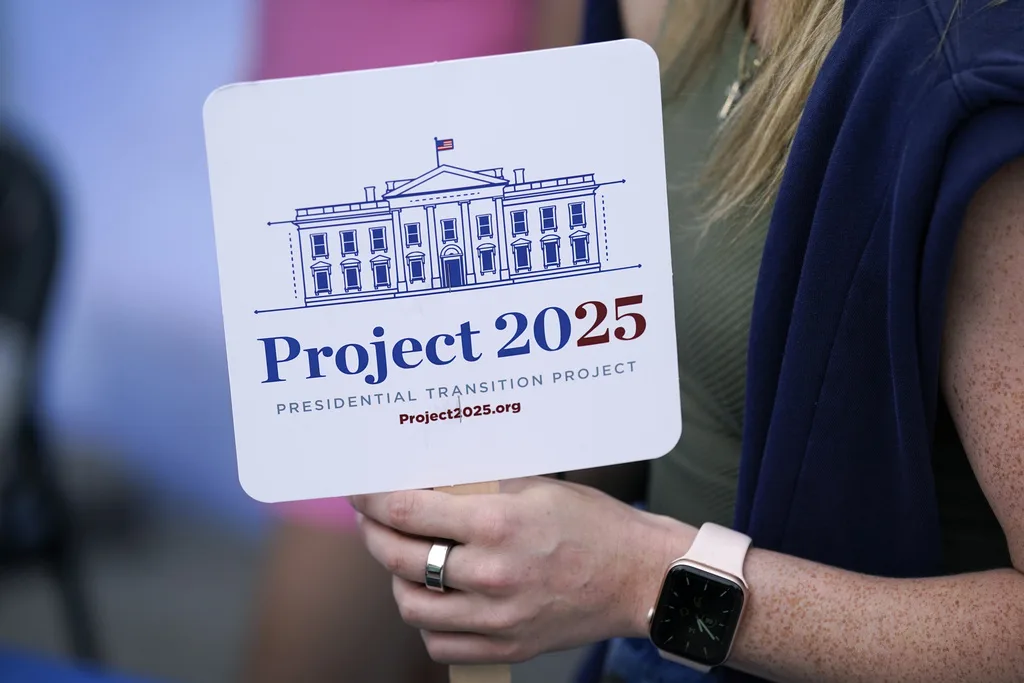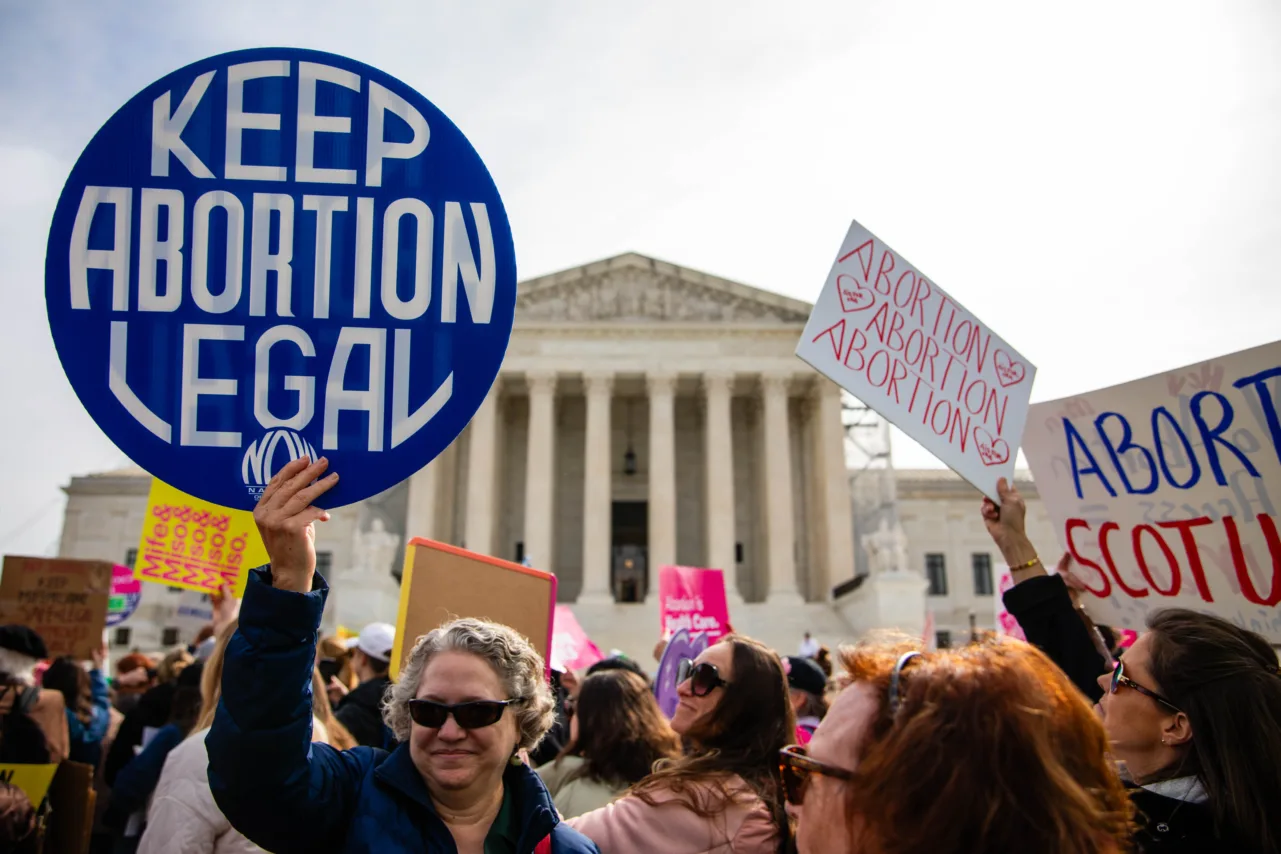
Reproductive rights advocates outside the US Supreme Court on Mar. 26, 2024. (Photo: Sean Kitchen)
The Supreme Court on Tuesday heard oral arguments on a case that will ultimately decide the future of mifepristone access in the United States.
Mifepristone, along with another drug, misoprostol, is approved through 10 weeks of pregnancy, and is used in more than half of abortions nationwide; it’s the most commonly-used method of abortion in the country.
Access to mifepristone was called into question last year, when US District Judge and Trump appointee Matthew Kacsmaryk sided with Christian conservatives who filed a lawsuit seeking to reverse the FDA’s 2000 approval of mifepristone.
Kacsmaryk—a far-right judge with a history of anti-abortion views—ordered a complete hold of the federal approval of the drug, overruling decades of scientific approval precedents and hundreds of studies documenting the drug’s safety in abortion care.
A federal appeals court partially blocked Kacsmaryk’s decision, maintaining mifepristone’s availability, but limited access in ways that could harm patients seeking abortion care.
The Supreme Court then stepped in and agreed to hear the case.
Hundreds of reproductive rights advocates rallied outside the US Supreme Court in Washington DC on Tuesday as the court listened to oral arguments.
“There is so much going on in our country that it’s imperative to do something,” Ginger Agnew, a Pennsylvania resident, said in an interview after arriving at Union Station. “I actually had to have an abortion for health care reasons. I wanted the baby.”
This case, Alliance for Hippocratic Medicine v. US Food and Drug Administration, is significant for a number of reasons. It’s the first time the right-wing Court has listened to a case relating to abortion access since their decision to overturn Roe v. Wade in the Dobbs decision, for example.
If the Court restricts access to mifepristone later this year, more than 64.5 million Americans will face additional restrictions to abortion care, according to Reproductive Freedom for All. A potential ruling could impact the medication’s distribution, even in states where abortion is legal, and force those seeking abortion to travel to an abortion provider to pick up mifepristone—which, especially in rural areas, could mean a very long trek.
In Arizona, abortion is banned after 15 weeks of pregnancy, and the state’s Supreme Court is currently deciding whether or not to reinstate a total ban that was passed in 1864. Reproductive rights advocates are working to place an abortion rights measure on voters’ ballots this year, which would give Arizonans the chance to enshrine reproductive rights into the state constitution.
Both health clinics and doctors have said that if mifepristone is pulled from the market, they’ll be forced to prescribe just misoprostol, which has a lower rate of effectiveness. Legal experts have said that this ruling could “upend decades of precedent” and could “set the stage for political groups to overturn other FDA approvals of controversial drugs and vaccines.”
“This has never happened before in history,” Greer Donley, a professor specializing in reproductive health care at the University of Pittsburgh Law School told the Associated Press last year. “It’s a huge deal.”
Additional reporting by Sean Kitchen, The Keystone.
Politics
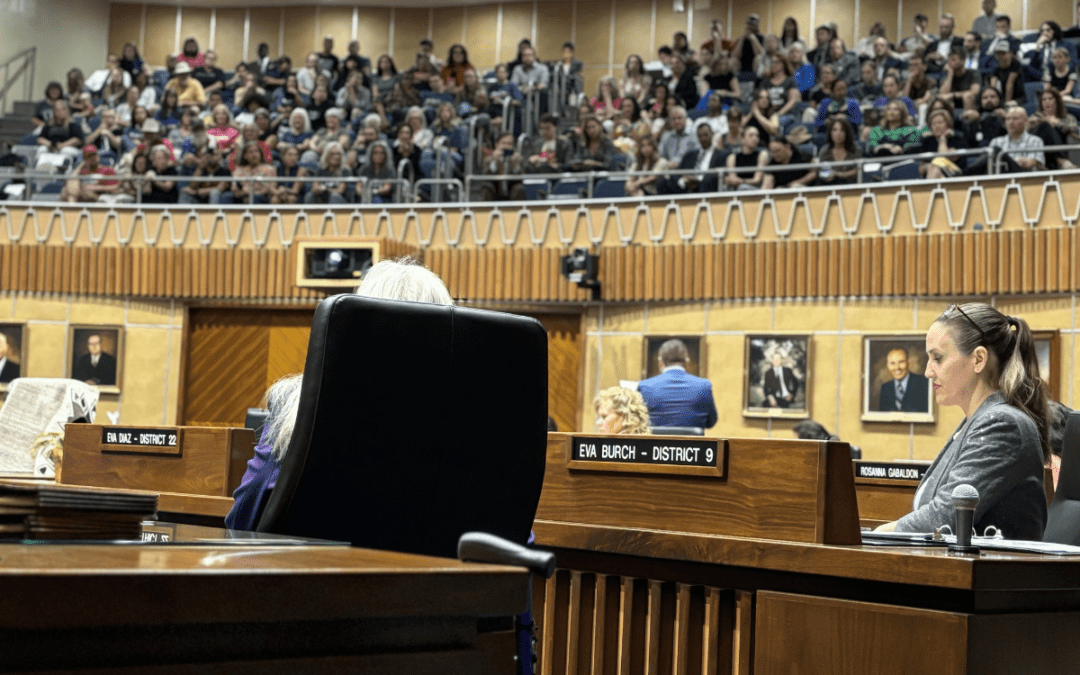
Democrats successfully force vote on repealing 1864 abortion ban, passes House
The Arizona legislature moved forward two bills Wednesday that would repeal the state’s 1864 abortion ban. A bill to repeal the ban has been...

State Official: 1864 abortion ban gives Arizona ‘black eye’
Arizona’s role at the forefront of the climate crisis, defending democratic elections, and protecting reproductive rights has caught the attention...
Local News
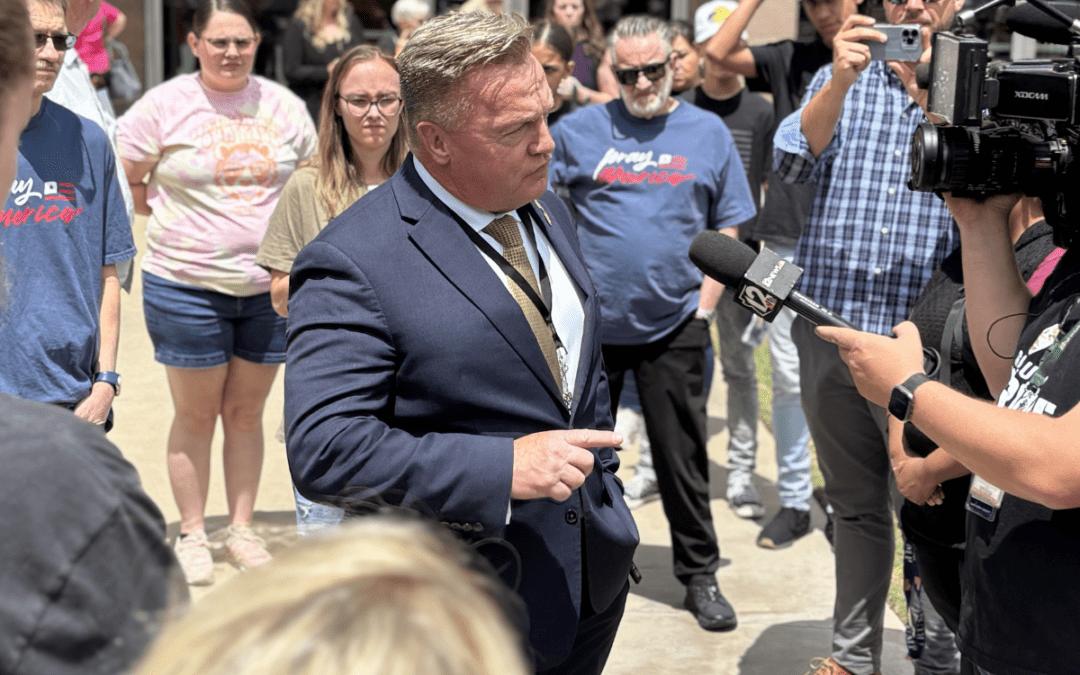
Arizona Sens. Anthony Kern, Jake Hoffman, indicted for fake election scheme
Eighteen individuals involved in a conspiracy to overturn Arizona’s election results in 2020 were indicted by a grand jury Wednesday and charged...
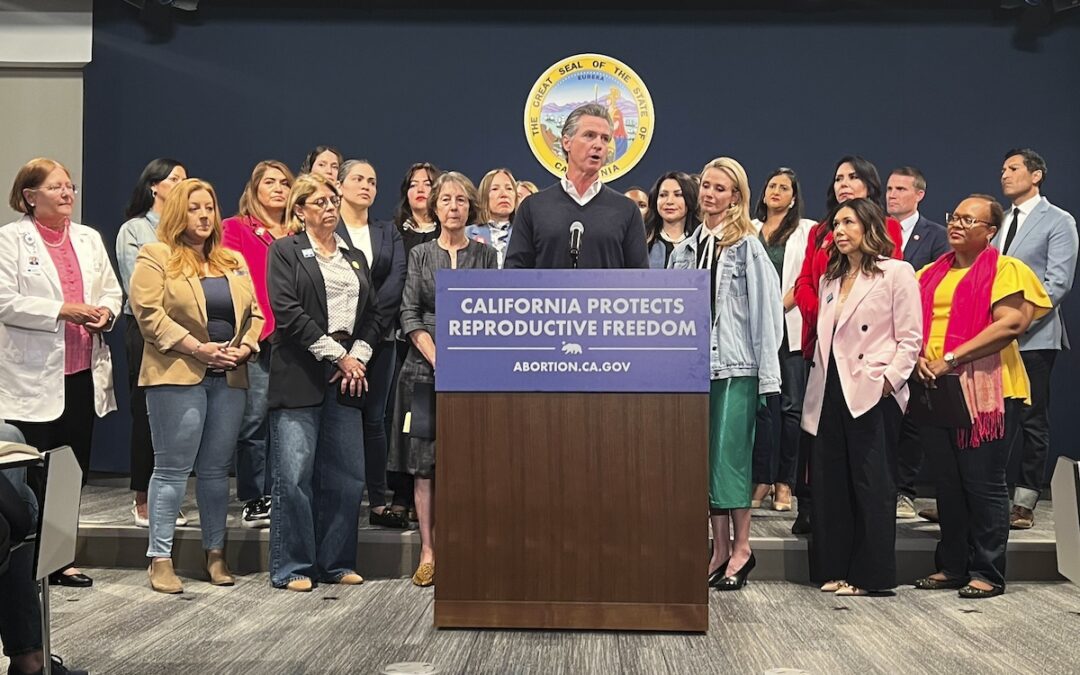
Gov. Gavin Newsom wants to let Arizona doctors provide abortions in California
California law generally allows abortion up to the point of fetal viability, which is around 24 weeks. SACRAMENTO, Calif. (AP) — Arizona doctors...





